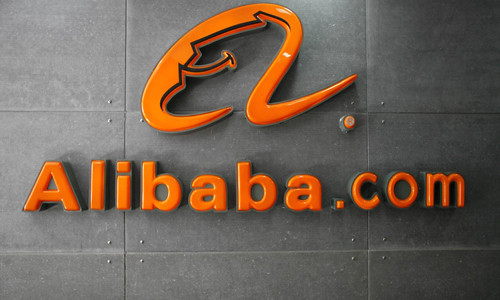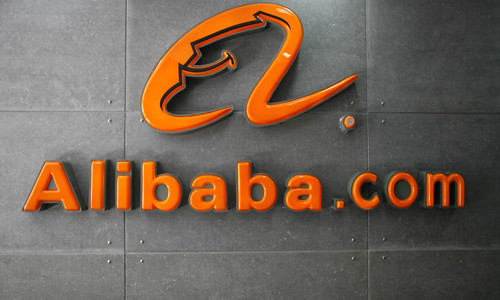
hinglish Notes via flickr
Now, Zhang will seek new directions for Alibaba's development at a time when the main business in the field of e-commerce is experiencing problems: the growth in retail sales in China has halved compared to 2018.
Unlike the world famous Jack Ma, the new head is very quiet and inconspicuous, and does not like publicity. However, this does not prevent him from being as ambitious and ideologically strong as Ma: those who know him say that Zhang works until he achieves his goals.
Reuters cites Jack Ma's several failures in developing Alibaba, which Zhang will have to fix:
Expansion in the international market
Ma promised that Alibaba would receive about half of the revenue outside of China, but did not achieve the goal, despite the high costs. For example, Alibaba spent $ 4 billion on the purchase and development of Singapore's e-commerce operator Lazada Group to expand in Southeast Asia, but ran into problems in Indonesia. In March 2019, the third Lazada’s CEO in nine months was dismissed.
Alibaba was also unable to buy the American money transfer system MoneyGram. Back in 2017-2018, Alibaba’s subsidiary Ant Financial offered $ 1.2 billion for MoneyGram, but the US government commission rejected the deal for reasons of national security.
China's economic slowdown
In the first half of 2019, retail sales in China grew by 17.8%, which is almost half as much as in 2018, when the growth rate was 32.4%. In the long run, this could adversely affect Alibaba’s core business, as consumers reduce spending on goods and advertisers pay less for advertising.
Alibaba was also forced to postpone the placement of shares in Hong Kong amid protests. The company planned to raise an additional $ 10-20 billion in August 2019. A new attempt may take place in October 2019.
Attracting new users
Alibaba’s biggest problem is attracting new users, said an analyst at ICBC International, a Hong Kong-based brokerage firm. For example, two major Alibaba’s competitors, JD.com and Pinduoduo, can use WeChat to attract customers, while Alibaba has no such leverage over its audience.
For example, in the underdeveloped rural areas of China, Alibaba has integrated e-commerce services in the Douyin short video recording application to gain new customers. However, Douyin has also started working with JD.com and other sites over the past months, which also interferes with Alibaba’s plans.
Counterfeits on Taobao
Foreign luxury sellers blame Taobao for selling fakes. Despite the use of fake detection algorithms, since 2017 Taobao has been on the American list of “Notorious Markets”, which infringe on copyrights and are too slow to moderate ads by violator sellers.
In general, not only will Zhang need to struggle with rivals, but also to fight with the memory of Ma, Bloomberg believes. Successors of cult leaders are often dismissed when the business is faced with difficulties and nostalgia sets in.
source: reuters.com, bloomberg.com
Unlike the world famous Jack Ma, the new head is very quiet and inconspicuous, and does not like publicity. However, this does not prevent him from being as ambitious and ideologically strong as Ma: those who know him say that Zhang works until he achieves his goals.
Reuters cites Jack Ma's several failures in developing Alibaba, which Zhang will have to fix:
Expansion in the international market
Ma promised that Alibaba would receive about half of the revenue outside of China, but did not achieve the goal, despite the high costs. For example, Alibaba spent $ 4 billion on the purchase and development of Singapore's e-commerce operator Lazada Group to expand in Southeast Asia, but ran into problems in Indonesia. In March 2019, the third Lazada’s CEO in nine months was dismissed.
Alibaba was also unable to buy the American money transfer system MoneyGram. Back in 2017-2018, Alibaba’s subsidiary Ant Financial offered $ 1.2 billion for MoneyGram, but the US government commission rejected the deal for reasons of national security.
China's economic slowdown
In the first half of 2019, retail sales in China grew by 17.8%, which is almost half as much as in 2018, when the growth rate was 32.4%. In the long run, this could adversely affect Alibaba’s core business, as consumers reduce spending on goods and advertisers pay less for advertising.
Alibaba was also forced to postpone the placement of shares in Hong Kong amid protests. The company planned to raise an additional $ 10-20 billion in August 2019. A new attempt may take place in October 2019.
Attracting new users
Alibaba’s biggest problem is attracting new users, said an analyst at ICBC International, a Hong Kong-based brokerage firm. For example, two major Alibaba’s competitors, JD.com and Pinduoduo, can use WeChat to attract customers, while Alibaba has no such leverage over its audience.
For example, in the underdeveloped rural areas of China, Alibaba has integrated e-commerce services in the Douyin short video recording application to gain new customers. However, Douyin has also started working with JD.com and other sites over the past months, which also interferes with Alibaba’s plans.
Counterfeits on Taobao
Foreign luxury sellers blame Taobao for selling fakes. Despite the use of fake detection algorithms, since 2017 Taobao has been on the American list of “Notorious Markets”, which infringe on copyrights and are too slow to moderate ads by violator sellers.
In general, not only will Zhang need to struggle with rivals, but also to fight with the memory of Ma, Bloomberg believes. Successors of cult leaders are often dismissed when the business is faced with difficulties and nostalgia sets in.
source: reuters.com, bloomberg.com


















